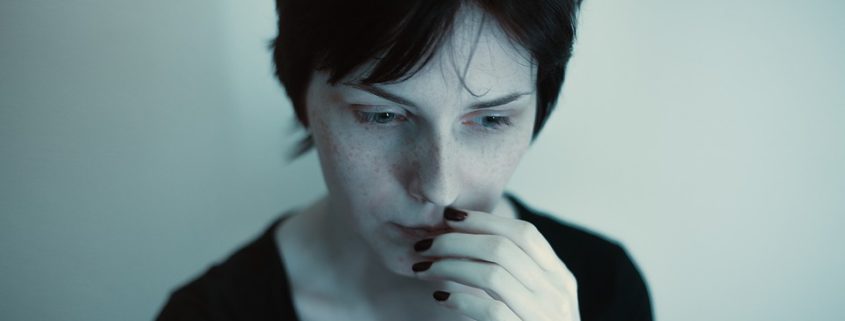Whether it occurs in the middle of the day or in the middle of the night, faced with a well-identified situation or for no apparent reason, the panic attack or anxiety crisis results in a feeling of intense fear combined with perceptible physical symptoms. It rather concerns adolescents and young adults. Hence, how can we deal with these passing phenomena and / or take care of ourselves in the longer term ?
Panic crises occur most often by surprise. During this time, the body gets maximum alert and gives the victim a sense of loss of control, sometimes going to a sense of unreality of the surrounding world. The attack results in a sudden surge of anxiety and fear. The heart beats and it becomes difficult or even impossible to breathe. The panic crisis is in fact a deregulation of the emotional system and does not represent any physical danger, rest assured.
Panic attack : how to identify it
Fear-based stress is a common experience that occurs most of the time when we face something unknown or that makes us uncomfortable. The panic is an intense wave of fear caused by our nervous system that responds to a real or possible threat. Whether you are healthy or subject to a particular disorder such as social phobia or as a result of trauma, attacks can occur for no apparent reason, sometimes even when you are relaxed or asleep. But they usually occur at specific times and most often repeatedly.
Signs and symptoms of panic attacks
These attacks are mostly triggered by a particular situation such as for example public speaking or the fear of driving or of flying, especially if this situation has already caused a crisis before. Faced with this phenomenon, you feel in danger and unable to escape. Certain factors such as stress also favour the occurrence of such anxiety attacks. Very frequent, characterised by their unexpected and strong intensity, these crises are similar to the syndrome known as panic disorder. Here are some of the signs and symptoms of panic attacks:
• Shortness of breath or hyperventilation
• Heart palpitations
• Chest pain or discomfort
• Dryness of the mouth
• Tremor
• Choking sensation
• Feeling detached from the surrounding world
• Sweating
• Nausea or stomach pain
• Feeling dizzy, stunned
• Numbness or tingling sensation
• Hot or cold flushes
• Fear of dying, losing control or going crazy
Fighting the underlying disorder with therapeutic work
Most of the symptoms are physical. They can be so severe that people having them regularly think of a heart attack. Panic is therefore often overlooked as a potential cause. Even if they do not present a health hazard, these anxiety attacks may be associated with major changes in behaviour or even persistent anxiety. The effects of the experience can thus leave a lasting imprint: The memory of the fear felt during the attack affects the self-confidence and causes daily disturbances. Some people mistakenly think that taking antidepressants or anxiolytics will help them overcome this ordeal, but this reflex is a temporary help but is in no way a solution to this emotional dysfunction.
In order to cope with this kind of situation, it is preferable to avoid situations that could cause an attack, like public spaces, without restricting your movements and activities on a day-to-day basis. Once the anxiety has passed, resume what you were doing before. If daily breathing exercises will help relieve panic attacks when they occur, treating the long-term anxiety crisis relies on working on the underlying disorder through therapy to alter the negative thinking patterns that fuel your crises. Because working on emotions is anything but medical! The contribution of psychotherapy to treat anxiety disorders is established. It is even the preferred treatment in the vast majority of cases before switching to medication.
Fighting against common misconceptions
The anxiety crisis is not the reflection of a mental illness
The crisis of anxiety is not dangerous, it does not represent a threat to your physical integrity
Time does not solve the problems, nor do antidepressants
They are not due to a disproportionate reaction to stress
These crises will last throughout your life! It is false and in particular thanks to a therapy that will make you work in depth on the problem!




